how tools shape us & then change us
the man who predicted the internet, neuroplasticity, and socratic questions.
Welcome to the 28th volume of Wellness Wisdom - A newsletter for the thoughtful. A medley of resources and thoughts on wellness start-ups, personal development, spiritual growth and philosophy.
This newsletter is free because I believe everyone deserves to have access to wellness resources.
If you want to support this publication, join me down the rabbit hole🔮🐇.
Hello thoughtful humans! 🍂🍃🍁
I’m currently in a small cottage in Emerald Hills for the Thanksgiving weekend. Sunlight dances through shivering leaves from a nearby maple. My lukewarm coffee cup nearby gives into the chill of the November morning as I recede into myself. Finally ample time to step away and think.
Today’s Wellness Wisdom:
my latest rabbit hole on Marshall McLuhan - the man who predicted the internet 30 years before it was invented.
A collection of reads on socratic questions, how to do nothing, the meaning of life, and friendship. Light stuff.
Notes on neuroplasticity from Dr. Andrew Huberman, a Stanford neuroscientist.
"We shape our tools and thereafter our tools shape us.” - J.Culkin
I recently went down a rabbit hole in order to find the genesis of this quote. It took me through the field of media ecology and landed me on the ideas of one man: Marshall McLuhan. A philosopher whose work formed the cornerstones of media theory and predicted the World Wide Web 30 years before it was invented.
There’s no way I could do his entire body of work justice in a blog post. For that you should check out this recent documentary and his pioneering book: Understanding Media: The Extensions of Man.
However, I wanted to share a few of his ideas that stopped me in my tracks, given my ongoing machinations around the extent to which our digital tools have mentally harmed us. And furthermore, the extent by which technology should be leveraged to reverse the negative externalities of its own doing.
Here are some of McLuhan’s core ideas:
All technologies are extensions of our physical and nervous systems to increase power and speed. Media/technology are extensions of some physical, social, psychological, or intellectual function of humans.
Speech & language extends human consciousness and intellect.
The wheel extends our feet
The phone extends our voice
Television extends our eyes and ears
Computer extends our brain
Electronic media, in general, extend our central nervous system.
Any extension, whether of skin, hand, or foot, affects the whole psychic and social complex. But recent extensions via electronic technology elevate the process of technological extension to a new level of significance.
Whereas all previous technology (save speech, itself) had, in effect, extended some part of our bodies, electricity may be said to have outered the central nervous system itself, including the brain.
Thus, pre-electric extensions are explosions of physical scale outward, while electronic technology is an inward implosion toward shared consciousness, a change that has significant implications.
Smartphones didn’t exist 10 years ago, now 2 billion people are using them, which is about 1/3rd of the earth’s population. As a result 1 in 3 people are now hunched over their phones not present to the reality around them. When 1/3rd of the world changes their body position and the way they communicate, it’s an anthropological-level event. Those kind of global changes used to take thousands of years. Now it takes less than 10. That’s hyper-change.
What we’ve done with electrical technology is to put our nervous systems outside ourselves. Every private operator can own a hunk of your nervous system as if it were a wheel, box or piece of land. He can stand on your nerves and exploit a part of your inner being by these external means.
This idea engenders some of the core arguments from The Social Dilemma - that social media companies capture our data (‘owning a hunk of our nervous system”) to exploit our emotional vulnerabilities.
“Rapidly, we approach the final phase of the extension of man—the technological simulation of consciousness, when the creative process of knowing will be collectively and corporately extended to the whole of human society, much as we have already extended our senses and nerves by the various media. Whether the extension of consciousness, so long sought by advertisers for specific products, will be 'a good thing' is a question that admits of a wide solution.”
What extends our physical and psychological capabilities, quickly becomes harmful in excess.
Kenneth Boulding calls it a ‘break boundary at which the system suddenly changes into another or passes some point of no return in its dynamic process”. The principle that at some point during their development, processes and methods go too far and reverse into their opposite.
McLuhan points to Hubris from classical Greek dramas - when a character’s overweening pride leads to his own fall, as well as the ancient Chinese Taoist text the Tao Te Ching, which refers to the same concept of excess leading to its opposite.
He points to the irony or roads and highways designed to provide freedom of movement have reversed into traffic congestion and urban sprawl. The irony that mobile, nomadic tribal societies were socially static while contemporary, sedentary, specialist societies are socially dynamic and progressive.
The antidote to this is not just awareness, but to adopt the stark opposite of the format. A “cure” for the effects of a dominant medium or pattern of the time can be a countervailing force in the opposite direction of the dominating force.
By being aware of the effects our media have on us we can be in a better position to counteract them. Things like tracking how many hours you spend on certain social media apps on your iPhone and quantifying the total time it takes you away from activities you truly value.
But that is only the first step. Awareness itself is not enough. One antidote to the numbing effect of a particular medium is to use another medium that has a counter-effect: “When the technology of a time is powerfully thrusting in one direction, wisdom may well call for a countervailing thrust”.
So turn off the TV (or the computer or the cell phone) after some time and read a book or take a walk in the woods. After enough reading, have a conversation with another human being. Instead of constant doing, do nothing.
In summary, the technology tools that we are shaping, are now starting to shape us are at the edges of our comprehension. These will happen much faster than previous medium shifts (print paper, television, etc.) and it will soon make us question the very nature of what it means to be human. We have to understand how tools are shaping us, and how to cope with that shaping in the time of hyper-change.
Next time you adopt a new tool ask yourself these questions:
What will this thing enhance? your feet, hearing, mind, etc.
As a result, what will this tool obscure away? eg. Your car lends power to your feet but numb the rest of your body.
How will too much of this thing, corrupt your initial aims? You start out as a consumer, and you may wind up consumed.
How can you adopt practices that counteract the entropy towards excess?
Questions that i’m asking myself as a builder of mindful products:
What’s technology’s role in counteracting its own negative impact? Producing an “app for everything” vs. just going out into nature and unplugging.
What are the ethical ramifications of a meditation app for mindfulness that utilizes gamification, thereby provoking anxiety?
Can there be a universally agreed upon threshold of “too much” of a new medium/technology?
Is the oneous on the individual, platform, or external regulators to track abuse and excess?
Should product teams have an internal metric that measures abuse and build features against it? How do you even begin to agree on that metric?
What does it mean to completely own your central nervous system and not stake it for sale? Theoretically and practically.
So much to think about it and definitely haven’t even graced the tip of the iceberg! If any, would love to hear the thoughts or questions its prompted in you as well 💌
Yours,
Patricia
Amusing Ourselves to Death ☠️
In 1985, American educator Neil Postman published his seminal work Amusing Ourselves to Death, exploring the effects that mass communication technologies have had upon American society. Postman chiefly argues that our form of communication serves as the lens through which we see the world:
Whether we are experiencing the world through the lens of speech or the printed word or the television camera, our media-metaphors classify the world for us, sequence it, frame it, enlarge it, reduce it, color it, argue a case for what the world is like.
How Do Nothing: Resisting the Attention Economy 🌸
A collection of essays that critique the modern “attention economy,” where our time and attention is deemed useless if not spent in the pursuit of profit and “progress.” Odell deftly weaves historical, literary, and artistic references together in a fashion which feels like you’re chatting with a brilliant friend.
What I’ve Learned In My First Year as a Solopreneur 🧘🏻♀️
Steve Schlafman reflects on how transitioning from VC to coach and creator has forced him out of his comfort zone. I found his investment in his mental and physical health to be especially inspirational:
Beginning in early 2020, I made a serious commitment to double down on my health. I wasn’t working out consistently, getting enough sleep, and eating well. I had unconsciously picked up some bad habits. I needed to get my act together especially if I was going to build a business and perform at a high level. Since early this year, I’ve deepened my daily meditation practice, worked with a virtual trainer, adopted intermittent fasting, studied under a Buddhist teacher, slept for 7-8 hours consistently, cut down on sugar and processed foods, and achieved five years of sobriety. The results speak for themselves. I’ve lost twenty pounds and my output has dramatically increased. I’m now able to show up with more energy, intention and awareness for those I serve. I’ve never felt and performed better in my life.
What do you hate not doing? ✨
Love this simple and short blog post by Derek Sivers that poses a great question:
What do you hate not doing?
What makes you feel depressed, annoyed, or like your life has gone astray if you don’t do it enough?
Answers to this double-negative question seem to be better indicators of what’s really worth doing.
Hell Yeah or No 🤔
He also recently came out with a new book, called "Hell Yeah or No". My roommate, AJ Goldstein, recently summarized some of its core tenants:
Hunter S. Thompson’s Life Advice To A Friend on the Meaning of Life ⏳
Love re-reading this essay every once in a while to remind myself that the point is not to accomplish through a rolodex of goals, but to be ourselves in our fullest actualized forms.
The answer— and, in a sense, the tragedy of life— is that we seek to understand the goal and not the man. We set up a goal which demands of us certain things: and we do these things. We adjust to the demands of a concept which CANNOT be valid. When you were young, let us say that you wanted to be a fireman. I feel reasonably safe in saying that you no longer want to be a fireman. Why? Because your perspective has changed. It’s not the fireman who has changed, but you. Every man is the sum total of his reactions to experience. As your experiences differ and multiply, you become a different man, and hence your perspective changes. This goes on and on. Every reaction is a learning process; every significant experience alters your perspective.
As I said, to put our faith in tangible goals would seem to be, at best, unwise. So we do not strive to be firemen, we do not strive to be bankers, nor policemen, nor doctors. WE STRIVE TO BE OURSELVES.
Snap's Friendship Report 2020 👯
Thanks to K.Shah for introducing me to Dr. Andrew Huberman, a neuroscientist at Stanford, through this phenomenal interview. If you listen to one thing this week, I promise this will be worth it. Here are some of my key takeaways:
Kids are super malleable up to 25, but it can change in adulthood. Neroplasticity is triggered by intense focus through learning new and uncertain things, and cemented through intense rest.
When something is uncertain (aka we try to learn a new habit) our brain starts trying to solve for 3 things: duration (how long will this take?), path (what course will it take to arrive at an outcome?) and outcome (what will happen at the end?).
That increases our cognitive load which will feel tolerable or stressful depending on how uncertain we are about any one or all of those things. People tend to give-up here.
If you can recognize that agitation is a normal process and gate you have to pass through in order to get into flow/focus and thus nueroplasticity, maybe you won’t give up.
Furthermore, if you can break down the outcome to mini milestones, instead of a huge milestone at the end. You can cycle sustainably through smaller cadences of “duration, path, and outcome” dopamine hits to reach your goals.
The way to get better at duration path outcome is to get good and doing things that don’t require intense duration path and outcome, aka sleep. Recovering is critical to improving ability to focus. i.e. you think you’re “relaxing” by scrolling through social media during your downtime, but it’s actually depleting your recovery time.
People tend to wait till they’re psychologically ready to start something. i.e thoughts inform feelings informs mood informs actions. Instead it’s flipped, mood follows action. Action towards what is uncomfortable first instead of rumination.
Thank you for being part of The Wellness Wisdom newsletter today.
I’m Patricia and have a full-time job but curate this newsletter in my free time as a labor of love.
This newsletter is free because I believe everyone deserves to have access to wellness resources.
If you want to support this publication, join me down the rabbit hole🔮🐇.
I also curate bi-weekly at AmorFati - a newsletter where I share whats been inspiring me in art, photography, architecture, and literature.



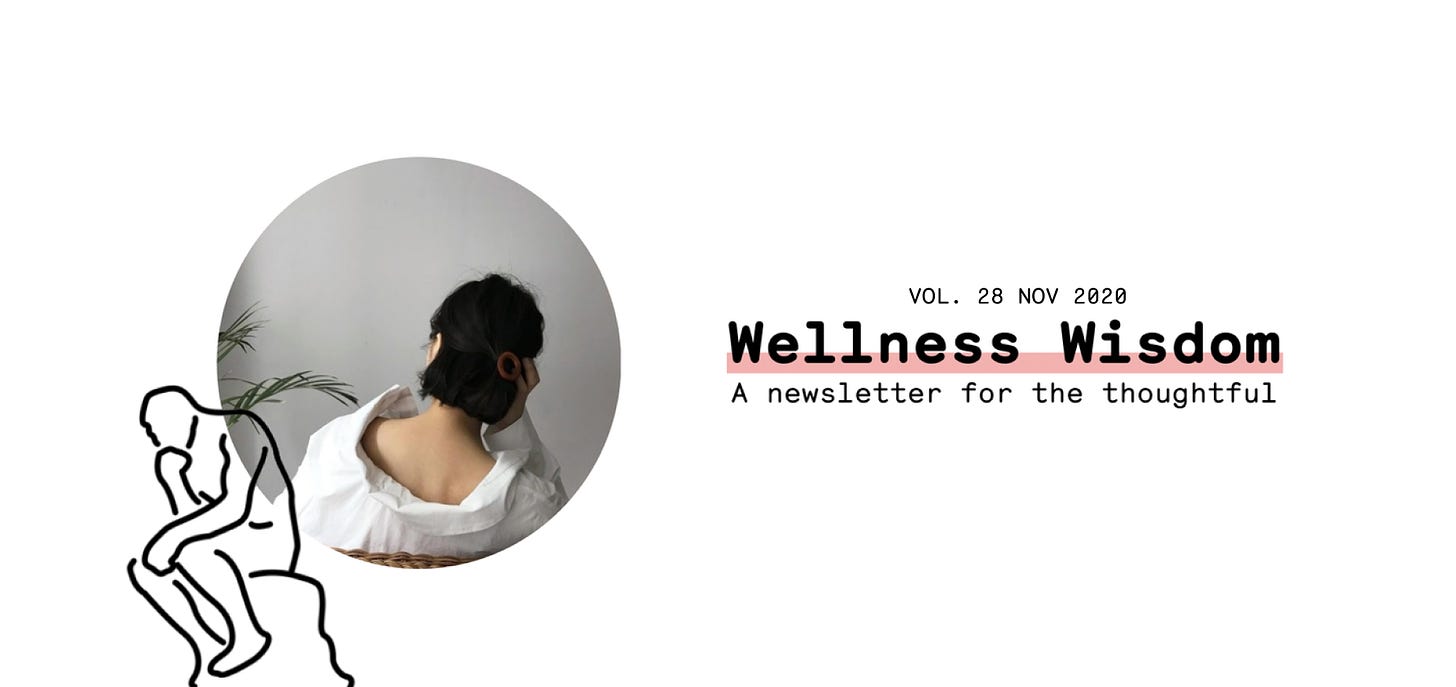

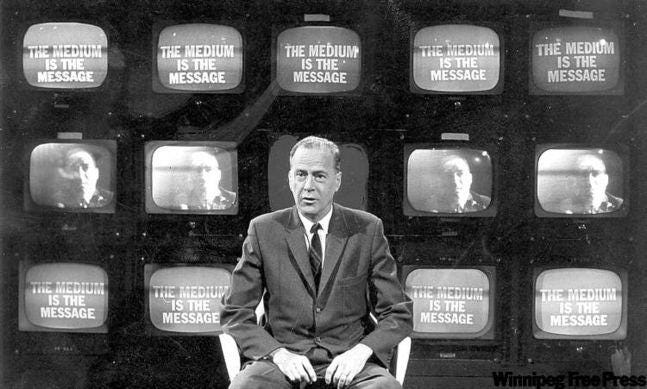
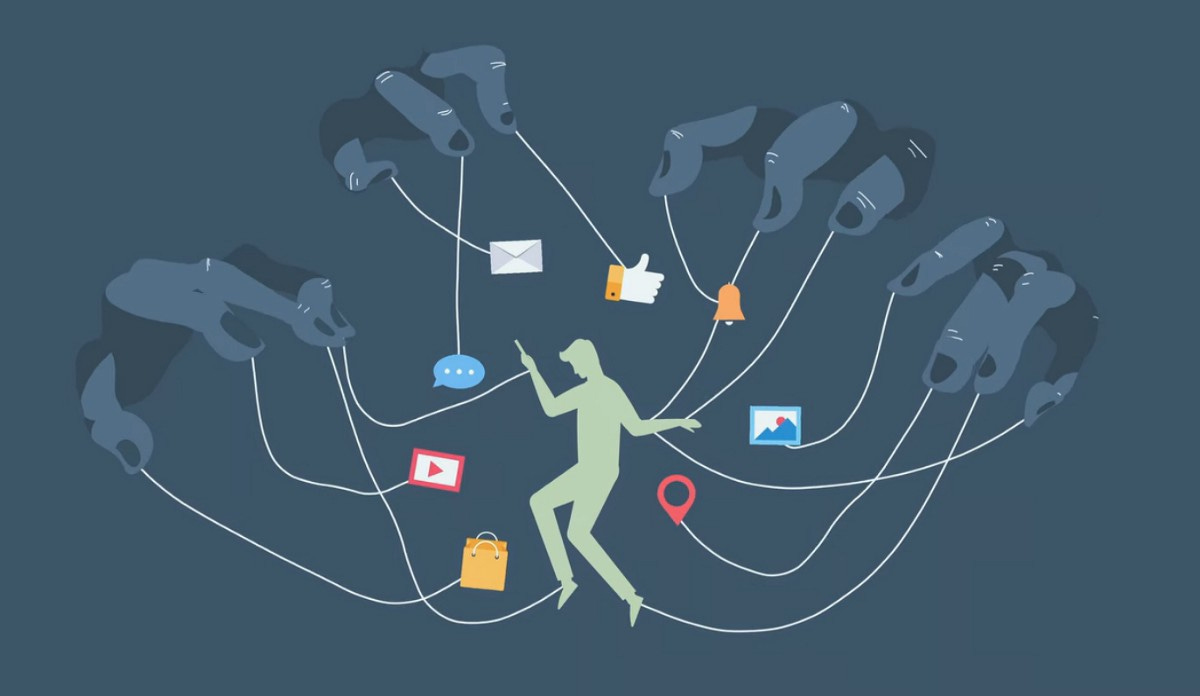






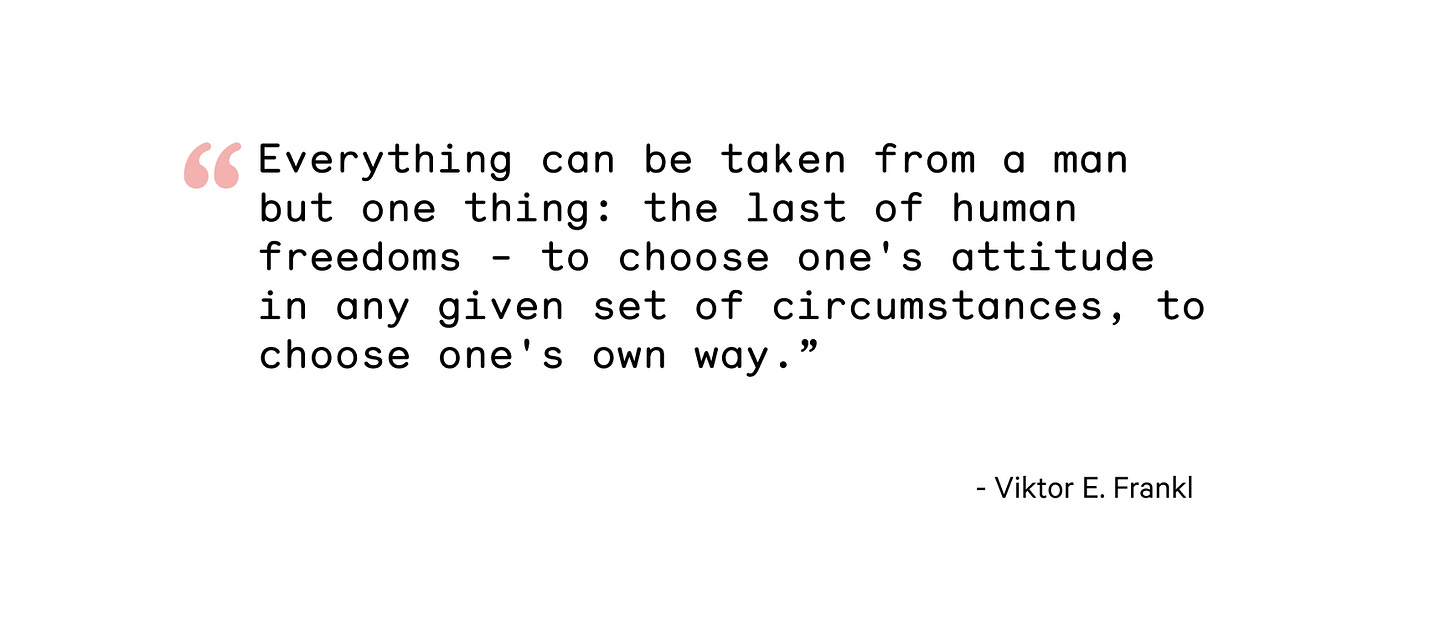

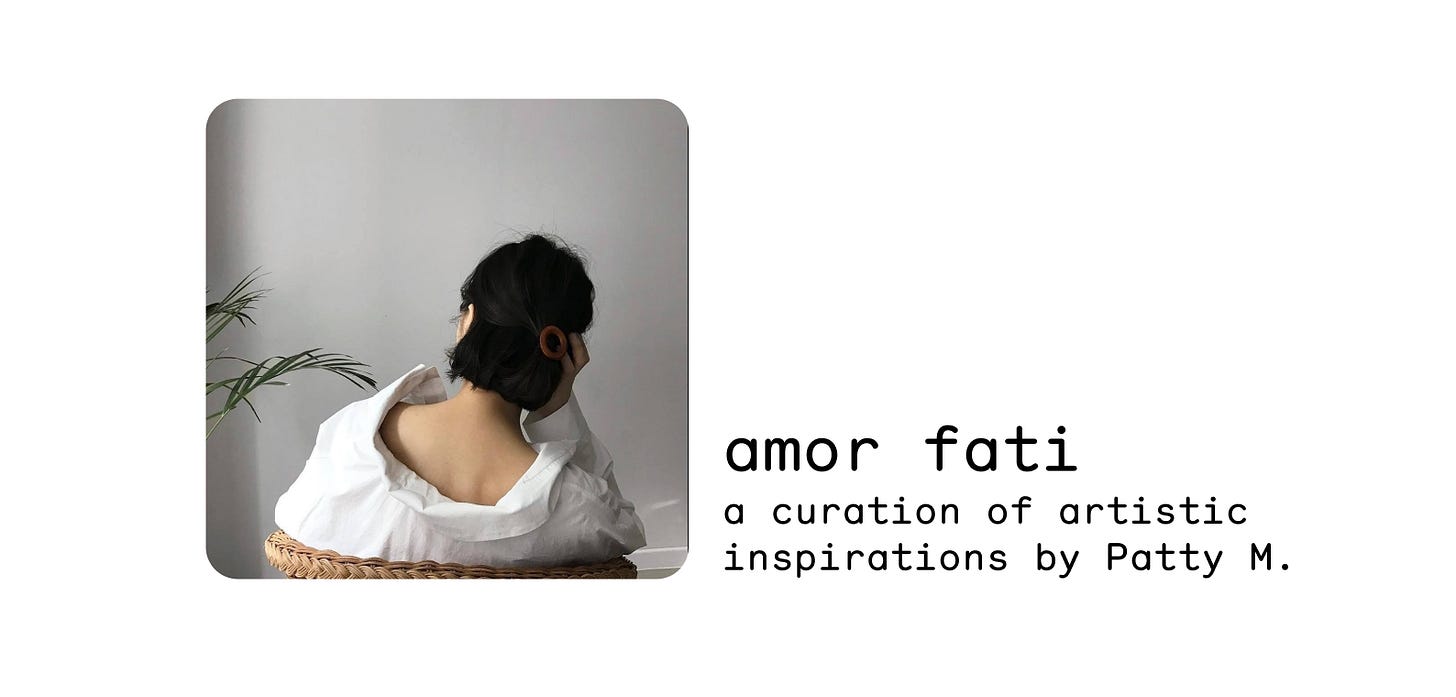
I was dismayed to hear Dr. Huberman say that physical action must come first, if i understood him correctly. I wish he would get in touch with the HeartMath institute. I believe it has long been known that our inner state influences our outer behavior/physicalaction. Either way, the physical body is informed from internal perception first.
In science, very often it gets on one track and stays there to provide evidence for the theory, unfortunately a limited approach.
I would much welcome a response.
Sincerely,
Cia A.